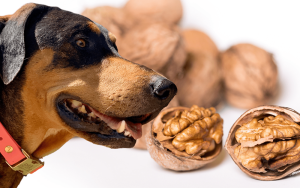Can Dogs Eat Raspberries? A Complete Guide to Safe Pet Treats

As pet owners, one of the most common questions we have is, “Can dogs eat certain fruits and foods?” Fruits, in particular, can be a healthy treat for your dog, but some are better than others. One fruit that often comes up is the raspberry. Raspberries
are a delicious, nutrient-packed fruit that many humans enjoy, but are they safe for dogs? The short answer is yes, dogs can eat raspberries in moderation, but there are some important factors to consider before feeding them to your furry friend.
This article will explore the benefits and risks of raspberries for dogs, how to safely incorporate them into their diet, and what you should be aware of.
Table of Contents
- Are Raspberries Safe for Dogs?
- Health Benefits of Raspberries for Dogs
- Risks and Potential Concerns of Feeding Raspberries to Dogs
- How to Safely Feed Raspberries to Your Dog
- Signs Your Dog May Have Had Too Many Raspberries
- Alternatives to Raspberries for Dogs
- Final Thoughts: Should You Feed Your Dog Raspberries?
1. Are Raspberries Safe for Dogs?
Yes, raspberries are generally safe for dogs to eat, but as with any food, they should be given in moderation. They are low in calories and provide several nutrients that can benefit your dog’s health. However, as with all fruits, the key is moderation.
Too many raspberries can cause digestive upset, diarrhea, or even an upset stomach due to their fiber content. Additionally, there are a few precautions pet owners should be aware of before offering raspberries to their pets.
Raspberries are naturally rich in antioxidants, vitamins, and minerals that can support your dog’s overall health. However, they should not replace your dog’s regular diet. Always remember that treats should account for no more than 10% of your dog’s
daily calorie intake.
2. Health Benefits of Raspberries for Dogs
Raspberries are packed with essential nutrients, some of which are beneficial for dogs:
-
Vitamins and Minerals: Raspberries are a good source of vitamin C, which is known to support immune function, and vitamin K, which plays a role in blood clotting. They also contain folate, potassium, and manganese, which are essential
for your dog’s health. -
Antioxidants: Raspberries are rich in antioxidants such as anthocyanins, quercetin, and ellagic acid. These antioxidants help fight free radicals in the body, which may reduce the risk of inflammation, support brain health, and
potentially slow aging. -
Fiber Content: Raspberries are a good source of dietary fiber, which can aid digestion and contribute to your dog’s overall gastrointestinal health. Fiber can also help regulate your dog’s bowel movements and support a healthy
weight. -
Low in Calories: For dogs that need to maintain or lose weight, raspberries can be a low-calorie treat. Unlike many commercial dog treats that are high in fat and sugar, raspberries are naturally low in both.
3. Risks and Potential Concerns of Feeding Raspberries to Dogs
While raspberries offer several health benefits, there are a few risks and precautions you should consider when feeding them to your dog:
-
Xylitol: One of the most important things to watch out for when giving any food to your dog is xylitol. This artificial sweetener is toxic to dogs, and some processed raspberry products (like raspberry jam or flavored products)
may contain it. Always make sure the raspberries are fresh and free from added sweeteners or preservatives. -
Overconsumption and Digestive Issues: Because raspberries are high in fiber, giving your dog too many can result in digestive problems such as bloating, diarrhea, or an upset stomach. A small handful of raspberries is sufficient
for most dogs, depending on their size. -
Choking Hazard: Although raspberries are soft, they can still pose a choking hazard, particularly for small dogs or dogs that tend to gulp food without chewing. Always supervise your dog when feeding them raspberries, and consider
cutting them in half for smaller breeds. -
Sugar Content: Although raspberries are low in sugar compared to other fruits, they still contain natural sugars. For dogs with conditions like diabetes or those prone to obesity, it’s important to limit the amount of fruit and
treat them as an occasional snack rather than a regular part of their diet.
4. How to Safely Feed Raspberries to Your Dog
If you want to treat your dog to raspberries, there are several ways to do so safely:
-
Fresh Raspberries: The safest option is to offer your dog fresh, washed raspberries. Make sure they are free from pesticides, and always remove any leaves or stems before offering them to your dog.
-
Frozen Raspberries: Frozen raspberries can be a great option, especially on hot days when you want to offer your dog a cool, refreshing treat. Just be sure to thaw them slightly before giving them to your dog, as hard frozen fruit
can be difficult for dogs to chew and digest. -
Homemade Dog Treats: If you’re feeling creative, you can incorporate raspberries into homemade dog treats. Mixing raspberries with other dog-safe ingredients like yogurt, pumpkin puree, or peanut butter can create a delicious
and nutritious treat for your dog. -
Avoid Processed Raspberry Products: It’s important to avoid giving your dog processed raspberry products, such as raspberry pie, jam, or any product that contains added sugars, artificial sweeteners like xylitol, or preservatives.
These ingredients can be harmful to your dog’s health.
5. Signs Your Dog May Have Had Too Many Raspberries
If your dog has eaten too many raspberries, you might notice the following symptoms:
-
Diarrhea or Loose Stools: Raspberries are high in fiber, and too much fiber can upset your dog’s stomach, leading to diarrhea or loose stools.
-
Vomiting: Overeating raspberries can also cause vomiting in some dogs.
-
Abdominal Pain or Bloating: Excessive fiber intake can lead to bloating, discomfort, or abdominal pain.
If you notice any of these symptoms, it’s a good idea to contact your veterinarian. In general, it’s better to err on the side of caution and give your dog only a small amount of raspberries at a time.
6. Alternatives to Raspberries for Dogs
If you’re looking for a variety of healthy fruit options to share with your dog, here are a few alternatives to raspberries:
-
Blueberries: Like raspberries, blueberries are a healthy, antioxidant-rich fruit that is safe for dogs in moderation. They are small, easy to feed, and offer similar benefits to raspberries.
-
Apples: Apples are another excellent fruit for dogs. Just be sure to remove the seeds, as they contain cyanide, which can be toxic to dogs.
-
Carrots: While not a fruit, carrots are a crunchy and nutritious snack that many dogs enjoy. They are low in calories and high in fiber and beta-carotene.
-
Bananas: Bananas are rich in potassium and easy to digest. They are a great treat for dogs, but like raspberries, they should be given in moderation due to their sugar content.
-
Watermelon: Watermelon is a refreshing, hydrating treat for dogs, especially in the summer. Just be sure to remove the seeds and rind before feeding it to your dog.
7. Final Thoughts: Should You Feed Your Dog Raspberries?
Raspberries can be a healthy and delicious treat for dogs when given in moderation. They offer a variety of health benefits, including antioxidants, vitamins, and fiber, which can support your dog’s immune system, digestion, and overall well-being. However,
it’s important to consider the potential risks, such as digestive upset from overconsumption or the presence of harmful additives in processed raspberry products.
As with any new food, it’s important to introduce raspberries slowly and watch for any signs of digestive discomfort or allergic reactions. Always remember that treats should not exceed 10% of your dog’s daily calorie intake, and they should complement
a balanced, high-quality dog food.
If you have any concerns about introducing raspberries or other fruits into your dog’s diet, it’s a good idea to consult your veterinarian. With proper care and moderation, raspberries can be a healthy and enjoyable addition to your dog’s diet.






